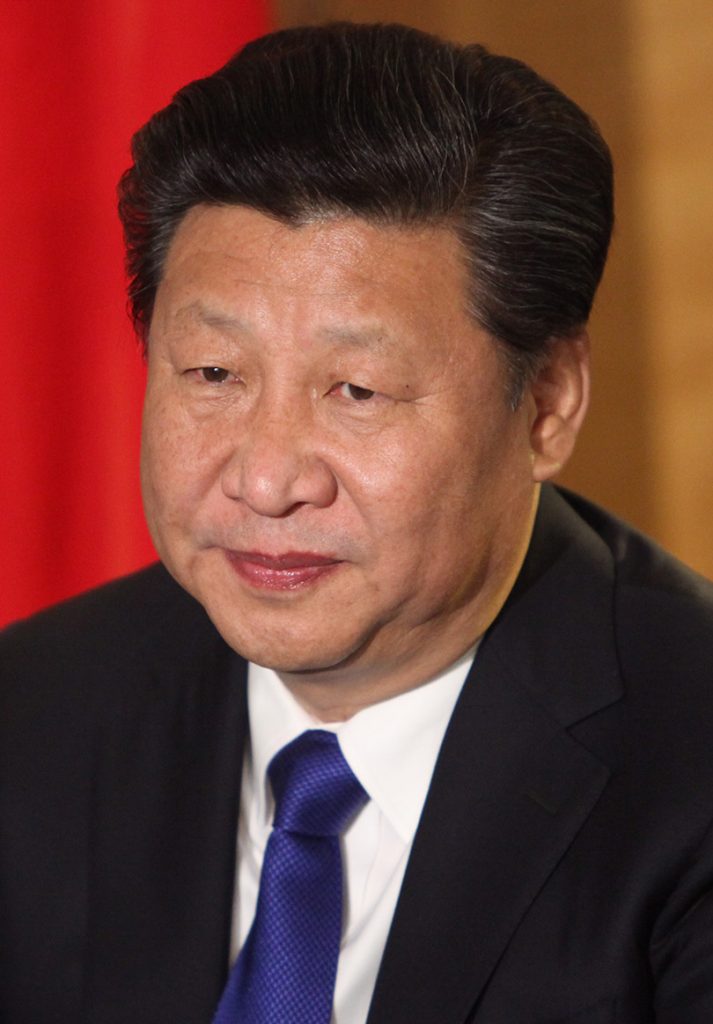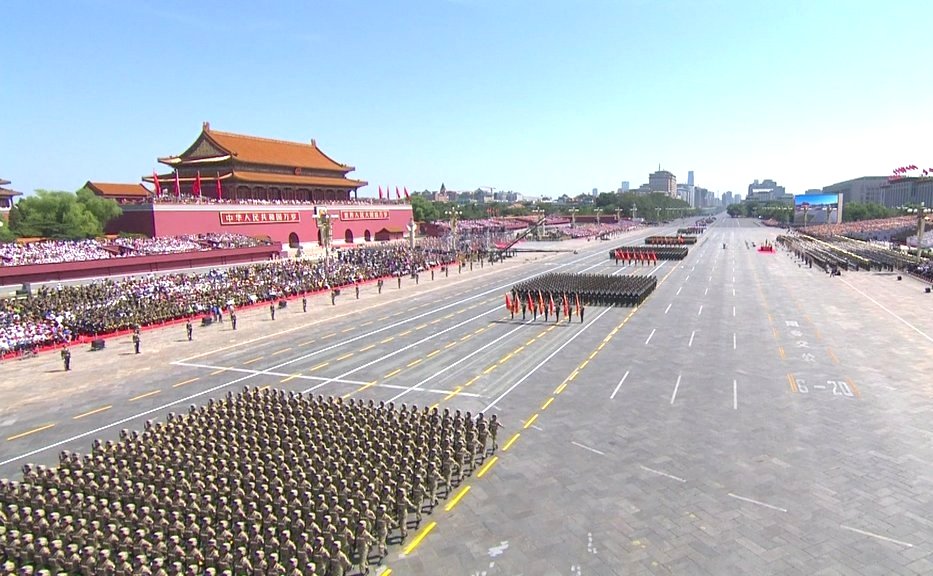by Brian Hioe
語言:
English
Photo Credit: Xinhua
RECENT STATEMENTS by China that it seeks to export its model of human rights abroad indicate how the Chinese party-state perceives criticisms made against it in the name of human rights as simply being western attempts to undermine it. And so, the Chinese party-state, in the name of cultural relativism, asserts that China can have its own interpretation of human rights, with “Chinese characteristics.”
Certainly, positive aspects of China’s new human rights “action plan” include vows to lower poverty through raising 60 million people out of poverty, and to reduce air pollution and incidences of disease. More questionable, however, are claims that China will seek to limit the future use of torture and to safeguard Chinese citizens’ Internet freedoms within permissible boundaries.
 Chinese president Xi Jinping. Photo credit: WikiCommons
Chinese president Xi Jinping. Photo credit: WikiCommons
Indeed, it is questionable whether any of China’s periodically issued human rights plans are more than propaganda, seeing as the plans are issued by propaganda bodies and not by legal bodies. If China’s human rights plans seem to evince a worldview that human rights are equal to economic development, with plans consequently reading more like a Five Year Plan than anything else, this demonstrates the overlap between China’s Marxist past and its capitalist present. This overlap comes from an economically reductionist worldview, as per vulgar Marxism, which is then layered on top of the rather capitalistic view that money can solve all problems.
Yet if the Chinese party-state thinks that there is something particularly unique about its model of human rights which allow it to be exported abroad for the sake of soft power, this implies a worldview that sees human rights discourse reduced to a tool employed by western countries as for the sake of soft power. Certainly, western countries use human rights to criticize their enemies for the sake of soft power. However, it is not true that human rights discourse, which emerged primarily during the Cold War, is reducible to soft power initiatives by western countries aimed at eroding the political credibility of their enemies.
As argued by Samuel Moyn in The Last Utopia: Human Rights in History, even if the United States was the first to introduce the term “human rights” into popular circulation, far from being an ahistorical notion, human rights discourse arose from the decline of utopian thought and a general suspicion of the grand narratives used by the US and the Soviet Union in the divided ideological climate of the Cold War. Human rights discourse is not tied to any particular state agenda, reflecting how human rights is a discourse which does not question the rights of nations to make war on each other, but merely places limits on the terms of warfare. Emerging during the Cold War, human rights discourse never questioned the Cold War itself or any of the proxy wars fought in the Cold War’s name, but only the conditions under which wars were fought.
Initially the domain of international NGOs such as Amnesty International, it was only later that various state actors appropriated human rights in service of their political agendas. Yet even if human rights discourse lacks any call for a transformative project for society in the way of more explicitly leftist, anti-capitalist politics and though human rights discourse can become yoked to state actors’ agendas, human rights remains a powerful idea which provides critique of authoritarian regimes. Human rights discourse is not reducible to a soft power tool of western powers seeking to undermine China. Human rights discourse, after all, claims the existence of basic, fundamental rights to every human being which supersede the claims of state actors. This aspect is what the Chinese party-state turns a blind eye to because this undercuts the logic of its authoritarianism. The Chinese party-state prefers to see human rights as reducible to a tool used by state actors to undermine China, because this conception of human rights does not challenge the authoritarianism of the Chinese party-state.
 Photo credit: WikiCommons
Photo credit: WikiCommons
China, seeking to prove that it is politically and economically the equal of the West, would like to advance its own version of human rights in order to show that two can play at the game of human rights. China’s claim that it can export its model of human rights ties into China’s attempts to demonstrate that the “China model” can be exported to the rest of the world. The hope is to demonstrate China’s economic and political ascendancy while also showing that China has achieved something unique which no other country in the world can claim.
Indeed, China claims its current human rights plan is founded upon “Marxism-Leninism, Mao Zedong Thought, Deng Xiaoping Theory, the important thought of the Three Represents, and the Scientific Outlook on Development, implementing the spirit of a series of important speeches made by General Secretary Xi Jinping.” As such, China claims that it has a unique viewpoint on human rights which differs from western notions of human rights because of Marxist influence. Of course, “Marxism” in China is more often than not a cipher for Chinese nationalism and this current case of human rights with “Chinese characteristics” that claims a Marxist source is no exception.

